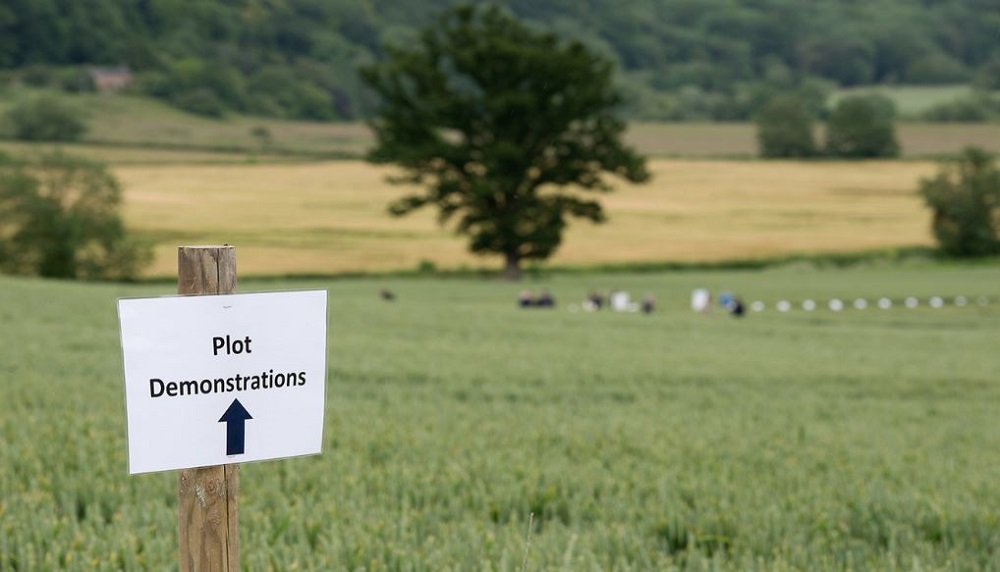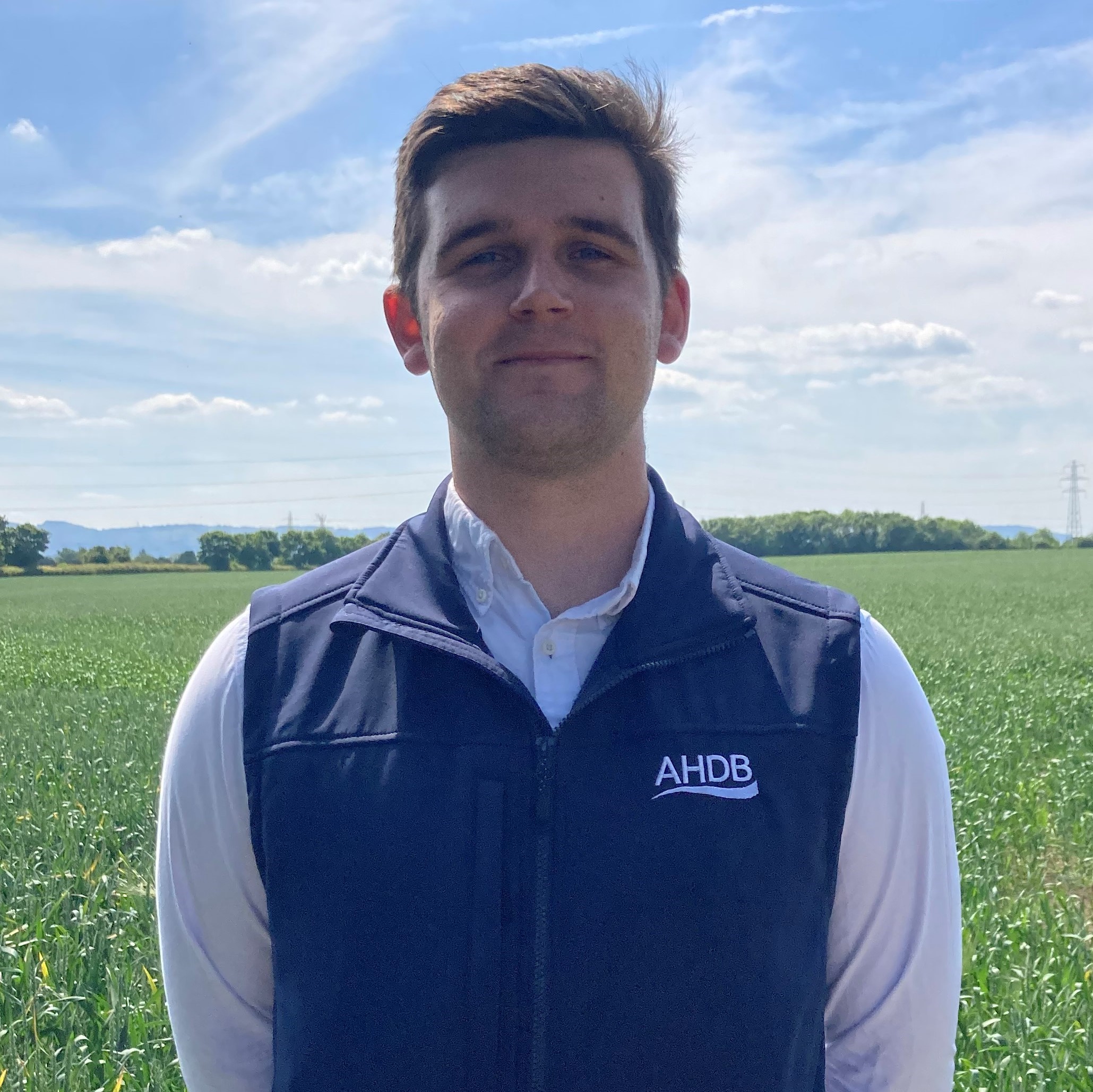- Home
- Connecting arable farmers with on-farm research opportunities (Farmer Marketplace)
Connecting arable farmers with on-farm research opportunities (Farmer Marketplace)
The AHDB Farmer Marketplace is an online platform where researchers pitch on-farm research opportunities to arable farmers. Discover how the process works and learn about recently pitched projects.
AHDB’s position in the agricultural landscape provides unique opportunities. For example, we are often approached to get farmers involved in many research initiatives. With about 25 commercial farms in our Farm Excellence network (Monitor Farms and Strategic Cereal Farms) at any given time, it is easy to see the appeal. The network is a potential hotbed for innovative research.
A key success of the network is the farmer-led, farmer-driven agenda. It is a ‘ground-up’, not a ‘top-down’, initiative. So, we developed a Farmer Marketplace initiative that honours this key principle.
How it works
Researchers contact AHDB with their on-farm research opportunities.
The AHDB knowledge transfer team considers each one, ensuring that each project addresses the long-term profitability of the cereals and oilseeds sector.
It is also expected that the projects will release the main findings freely to all farmers.
If you have a research project to pitch to farmers, please get in touch.
Much like TV’s Dragons’ Den, researchers are invited to rapidly pitch opportunities to farmers in an online Farmer Marketplace meeting.
The short (5-minute) pitches clearly outline the project, the requirements (including costs) and the benefits.
Following each pitch, attendees ask probing questions.
At the end of the pitches, the researchers leave the meeting to permit open, frank and farmer-led discussions.
The participating farmers retain the power to opt ‘in’ or ‘out’ of any opportunity, deciding which ones they want to implement on their farms.
There is no fixed schedule, with the meetings driven by the availability of farmer participants and suitable projects.
 Russell Lewis Photography
Russell Lewis Photography


Initial activity
To date, the Farmer Marketplace meetings have involved farmers and steering group members from across the Farm Excellence network.
Connecting research with our on-farm network provides ready-made opportunities to showcase the work with many farmers, through our regular on-farm events. It also unites fragmented research in a well-established network.
The initial meetings were well received, with several participants interested in learning more and potentially getting involved.
The potential to widen out the Farmer Marketplace to more people is being considered.
Research pitches
Project: Nitrogen efficient plants for Climate Smart arable cropping systems (NCS) (bofin.org.uk/the-ncs-project)
Pitchers: Tom Allen-Stevens – BOFIN
Patter: The NCS project promotes the growth of home-grown pulses and legumes for livestock feed, striving to increase pulses in arable rotations (from 5% to 20%). This will help to replace some of the imported soya meal currently used in livestock feed rations (up to 50%), ultimately reducing carbon emissions.
The project has set up a PulsePEP (Performance Enhancing Platform) community on The Farming Forum to promote discussion, aiming to secure at least 500 members. Of these, at least 200 farmers will use carbon footprinting tools to benchmark and track greenhouse gas (GHG) emissions on their farms (to help compare approaches).
A community subset (called Pulse Pioneers) will host paid-for trials* to test novel concepts, ideas, products, rations and sensors. The work will use multiple datasets, including data from the Pulse Yield Enhancement Network (YEN), to evaluate the relative GHG emissions, soil health and nitrogen benefits of legumes in rotations. In the first year, there were ten Pulse Pioneers. Ten more will be recruited this year.
Participants need to:
- Grow a spring or winter pulse crop
- Grow a cereal crop (for comparison)
- Undertake sampling requirements for YEN
- Share knowledge on the farming forum (Pulse PEP)
*The UK Research and Innovation (UKRI) project is led by the Processors and Growers Research Organisation (PGRO) with 18 delivery partners. The total project cost is about £6M and runs from March 2023 to March 2027. The costs include £370,000 paid directly to farmers for participating in on-farm trials.
Project: Thriving Roots Underpinning Total soil Health (TRUTH) (bofin.org.uk/truthproject)
Pitchers: Tom Allen-Stevens – BOFIN
Patter: TRUTH is a farmer-led research programme that evaluates soil-root interactions and explores novel technologies to measure soil and root health. It is all about understanding what is happening under our feet.
The farmers (‘Root Rangers’) receive training to use various tools that can inform sustainable soil management practices. For example, they take soil cores for off-site analysis and help develop in-field methods (that any farmer can use), ranging from soil sensors to shovelomics. It is part of a drive to test if claims made about commercial techniques and products can stand up to field scrutiny.
One of the sensors under test detects volatile organic compounds (VOCs) and gases. The ‘smell fingerprint’ can provide information on several key biological and non-biological indicators of soil health. For example, the project will help improve the measurement of microbial diversity.
Some of the on-farm trials assess root characteristics of commercial and novel wheat varieties to identify key rooting traits, which will help scientists and breeders understand the genetic underpinning.
The project forms part of a wider Soil Circle that brings together specialist knowledge to promote evidence-based discussions on soil and root health.
*TRUTH is a three-year research programme, led by BOFIN with four partners: UK AgriTech Centre, University of Nottingham, John Innes Centre and PES Technologies. Starting in January 2024, the £1m project is funded as part of the Farming Futures R&D fund within Defra’s Farming Innovation Programme, which is delivered by Innovate UK.
Project: Restoration of compacted soils
Pitchers: John Langley-Randall – ADAS
Patter: This project examines ways to restore compacted soils, covering physical, chemical and biological interventions. It will assess key interventions, including their contribution to the amount and rate of soil recovery, and inform future research.
The researchers need 30 arable farmers across England with soil compaction issues on their farms to get involved in a one-off soil sampling survey (mainly to identify the sampling sites). Conducted by the project's research team, the survey will compare areas with compaction (control) with areas where compaction has been alleviated (to some degree). The team will measure core soil health indicators based on the AHDB soil health scorecard, as well as other indicators (such as total earthworm weight and vegetation cover). All lab analyses will be carried out at an accredited UK laboratory.
A short questionnaire will capture details about the participants' farms, including the site, the systems and management approaches. All results and observations will be shared with the participants.
Funded by Natural England, the project involves ADAS, NIAB, UK Centre for Ecology & Hydrology and Wright Resolutions.
PhD spotlight: Increasing soil resilience to abiotic stresses
Pitchers: Ken Haynes – Aberystwyth University
Patter: This participatory research PhD project (funded by UKRI) examines how farmers are changing their soil care practices in response to abiotic stresses, with a focus on water stress (caused by flooding and drought).
The work combines the fields of natural science and social science. The former deals with the more familiar territory of soil health and its management. The social science component is based on noticing what shapes a farmer's approach to soil care.
It will look at how research changes what we know about the soil and how we put that new knowledge into practice in the field. It considers the role farmer networks play and how they drive changes in soil care practices. The project is particularly interested in how much time farmers have (or don't have) to engage with research and to trial new soil care practices.
Ken is establishing a farmer researcher group, comprising 10 to 15 farmers (initially), to help shape the direction the research takes (there is a lot of flexibility in the project). Ultimately, the project aims to remove barriers to progress and unlock potential on farms.
The PhD project started in autumn 2022 and runs until autumn 2026.
Project: Environment Baselining Pilot (ahdb.org.uk/baselining)
Pitchers: Mary Vickers – AHDB
Patter: The intense pressure faced by farmers to deliver on environmental targets will be addressed through a new pilot, launched by AHDB, with support from Quality Meat Scotland (QMS). AHDB needed farmers to express an interest in participating in the pilot by 3 July 2024. The project aims to create environmental baselines for up to 170 farms across Great Britain. Participants will get independent data to reveal each farm’s environmental performance and the knowledge and confidence to make improvements. Critically, the pilot will also help redefine how farming is seen on the environmental stage.
Project: Agroforestry Tests and Trials (woodlandtrust.org.uk)
Pitcher: Emma Bird – The Woodland Trust
Patter:
This project wants to make sure that government support for agroforestry is fit for purpose. Earlier this year, Defra announced grants for in-field agroforestry for the first time. The Woodland Trust is leading a Defra Test-and-Trials project, in collaboration with the National Trust and the Organic Research Centre. It works with farmers in England as they design agroforestry schemes and apply for funding. The project will help to test and adapt advice and guidance structures, via the Environmental Land Management (ELM) scheme. Participants (who are paid for their time) are randomly selected to complete one of four types of training (one-to-one on-farm advice, four short online webinars, one-day group training or a self-led course) before creating an agroforestry design for their farms. Phase two of the project starts in September 2024.
Project: Centre for High Carbon Capture Cropping (carboncapturecropping.com)
Pitchers: Lydia Smith – NIAB
Patter:
The Centre for High Carbon Capture Cropping (CHCx3) is a four-year, NIAB-led project. The research helps UK farmers and growers target net zero and build farming resilience by diversifying cropping. The project needs farmers to get involved in trials and demonstrations that focus on four cropping options: cover crops; annual fibre crops (industrial hemp, flax); perennial food, feed, and forage cropping (including cereals and herbal leys); and perennial biomass crops (miscanthus, willow/poplar). The work examines the effect of cultivation systems and agronomy on economic returns and environmental outcomes. The centre also develops guidance and market opportunities.
Project: Climate Farm Demo (climatefarmdemo.eu)
Pitchers: Stephen Briggs and Ian Knight – Abacus Agriculture
Patter: This pan-European network (28 countries) tackles climate change. It helps the agricultural sector adapt to the impacts and contributes to carbon-neutral strategies. Participating farms get a free climate mitigation plan, tailored by a Climate Smart Advisor. Each farm is required to host two events across the project, but these can tie in with another meeting. Across the UK, the researchers need to recruit 130 farms (1,500 across Europe).
Project: Leguminose (leguminose.eu)
Pitcher: Jerry Alford – The Soil Association
Patter: This pan-European project takes an evidence-based, farmer-led approach to develop viable production systems where legumes are intercropped with cereals. The project needs farms to host simple strip field trials. In return, the farmer gets free grain, soil and other analyses, peer-to-peer support and some compensation.
Project: Framework for improving nitrogen efficiency (FINE)
Pitcher: Clive Blacker – AgAnalyst
Patter: Very high levels of nitrogen use efficiency (NUE) are theoretically possible. However, knowing how to improve NUE without an unacceptable hit to grain yield or protein is a challenge. This project provides the expertise and exploits the tools needed to optimise NUE in wheat. It is about the right amount of nitrogen, in the right place, at the right time. Commercial field sites are required to test treatments (which include prescribed rates), with access given for soil and crop analyses.

